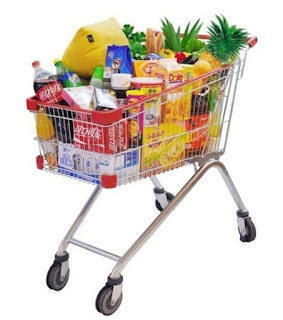Supermarket Trolleys
Supermarket Trolleys also known as shopping carts or shopping trolleys, are essential tools for customers to conveniently transport goods while shopping in supermarkets or grocery stores. These carts typically consist of a metal or plastic frame mounted on four wheels, with a basket or compartment for holding items. Here are some key features and considerations related to supermarket trolleys:
Design and Construction: Supermarket trolleys come in various designs and sizes to accommodate different shopping needs. They are usually constructed from durable materials such as steel or plastic to withstand heavy use and provide stability while maneuvering through aisles.
Capacity: Trolleys are designed to carry a certain capacity of goods, ranging from small baskets for quick trips to larger carts for bigger shopping loads. The capacity can vary depending on the size and design of the cart, with some models featuring multiple tiers or compartments for organizing items.
Handle and Steering: Trolleys are equipped with a handlebar or grip for users to push or pull the cart comfortably. The handle is often padded or ergonomically designed to reduce strain on the user's hands and wrists. The wheels are typically swivel-mounted, allowing for easy maneuverability and steering around corners and obstacles.
Safety Features: To ensure the safety of both customers and merchandise, supermarket trolleys may include features such as child safety seats or straps to secure children while shopping. Some carts also have built-in brakes or locking mechanisms to prevent them from rolling away when unattended.
Hygiene and Maintenance: Supermarkets typically have procedures in place to clean and sanitize trolleys regularly to maintain hygiene standards and prevent the spread of germs. This may involve disinfecting handles and baskets, as well as inspecting carts for any damage or wear and tear that may affect their usability.
Accessibility: Supermarkets may provide specialized trolleys designed for customers with disabilities or mobility limitations, such as those equipped with ramps or extra support features. These accessible trolleys ensure that all customers can comfortably navigate the store and complete their shopping independently.
Customer Experience: The availability of clean, well-maintained trolleys can contribute to a positive shopping experience for customers. Supermarkets may invest in features such as smooth-rolling wheels, spacious baskets, and convenient placement of trolleys throughout the store to enhance customer satisfaction and convenience.
Overall, supermarket trolleys are indispensable tools that make shopping easier and more efficient for customers, while also serving as essential equipment for retailers to manage inventory and facilitate sales in their stores.

.jpg)

.jpg)
Comments
Post a Comment